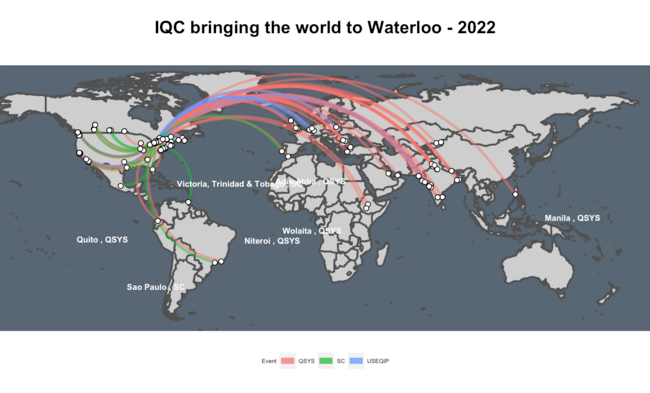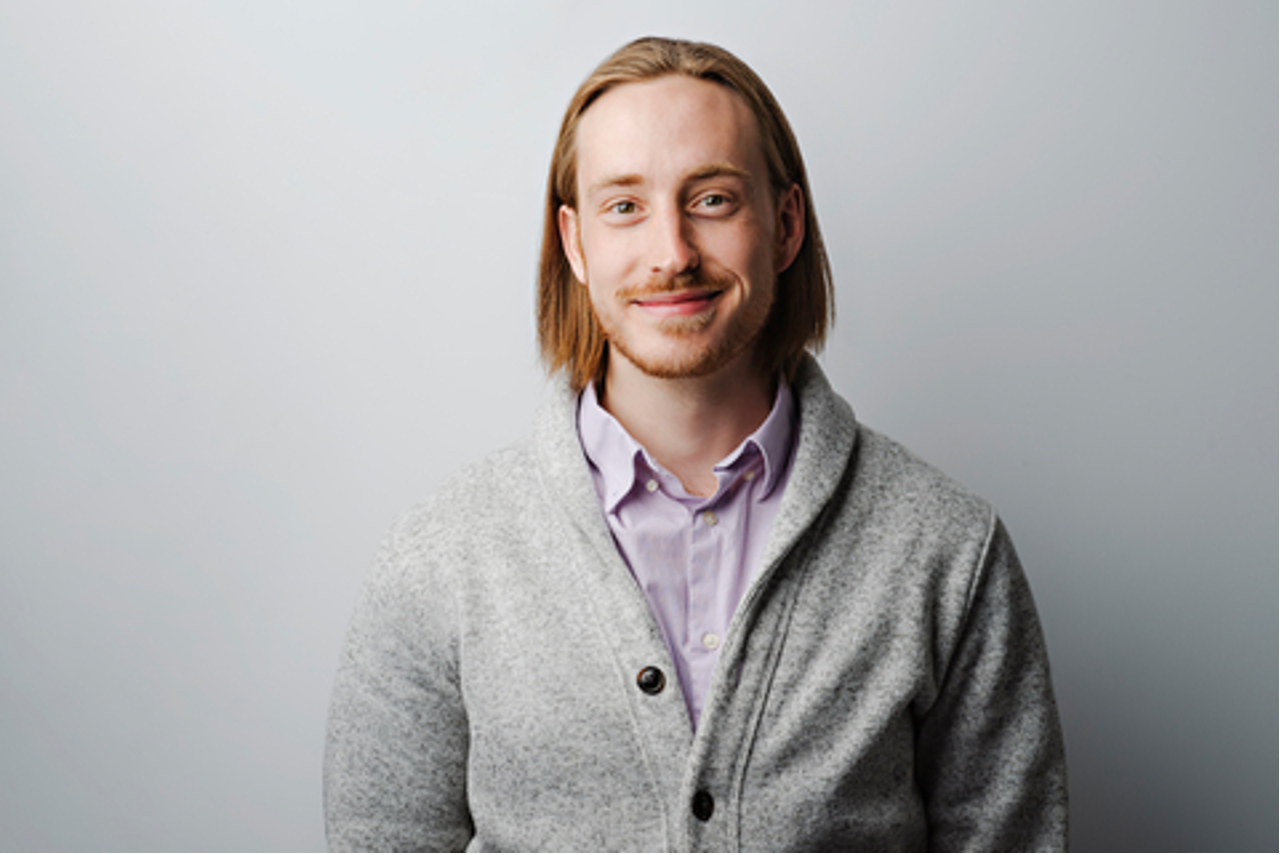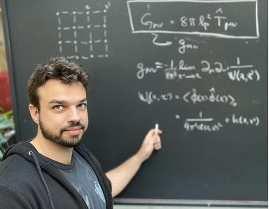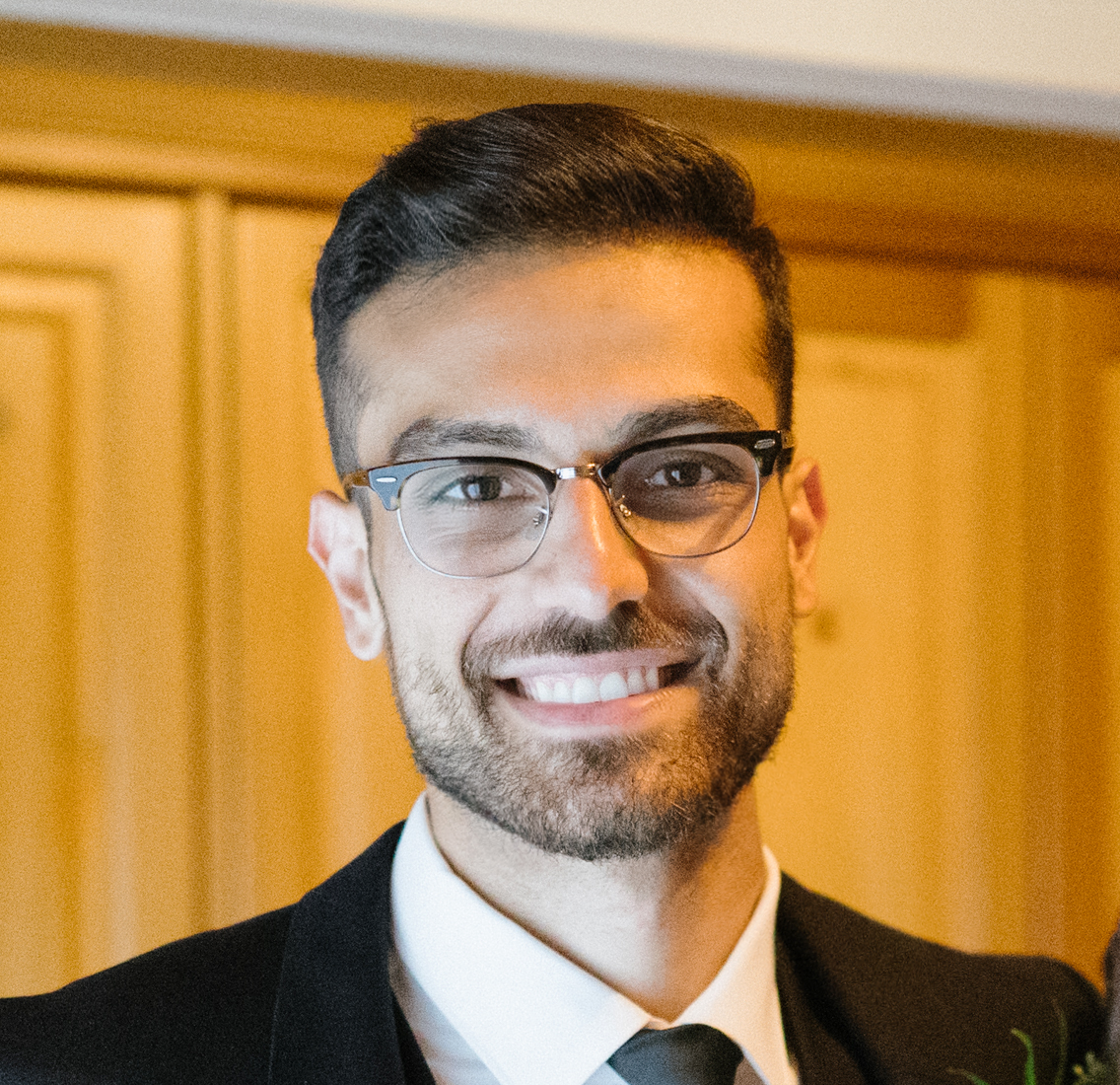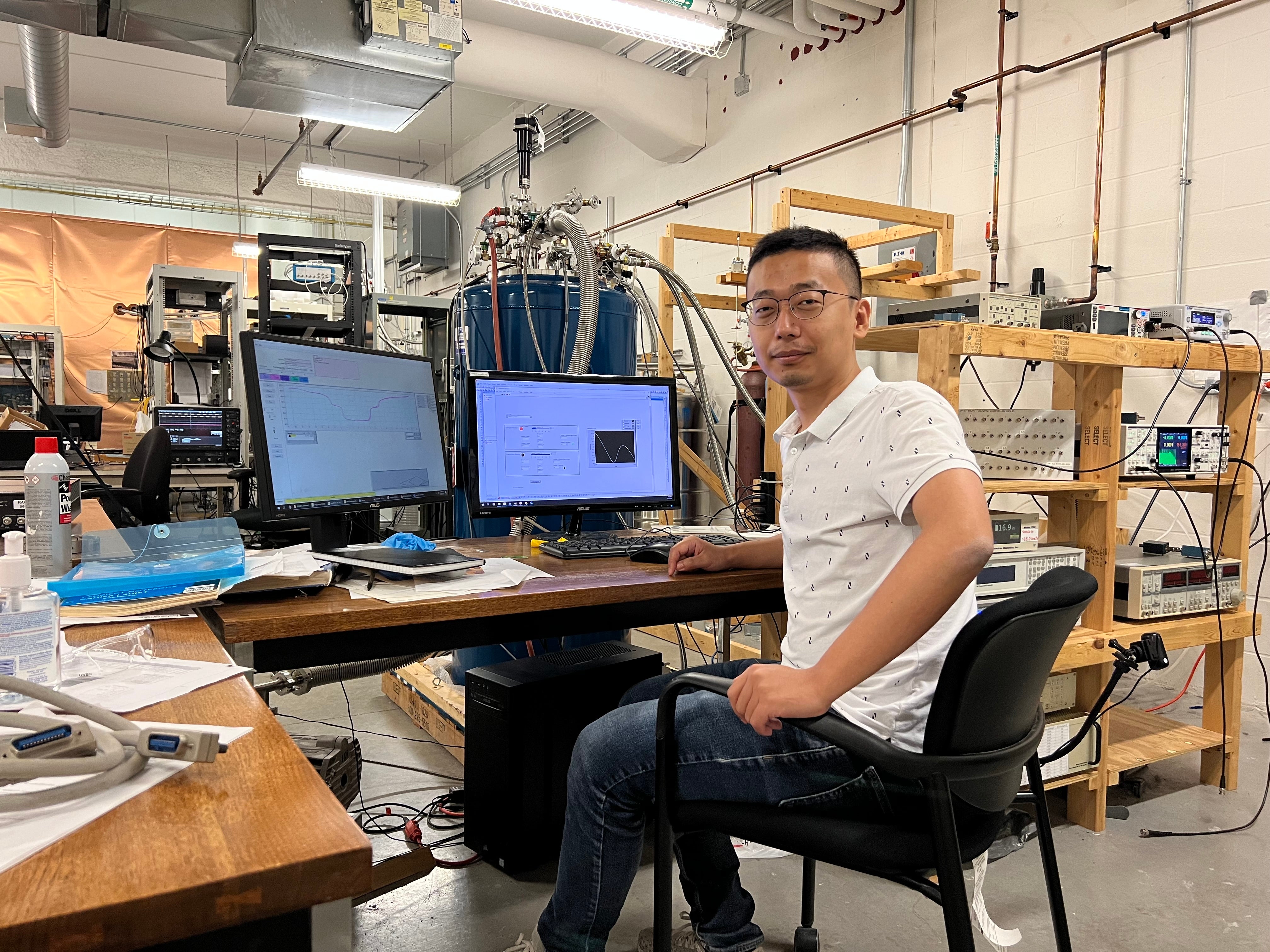As we wrap up 2022, the 20th year of the Institute for Quantum Computing (IQC), we want to take this opportunity to reflect on the accomplishments of our community and recognize some of the highlights of the year.
Read about IQC’s 20th Anniversary celebrations, our quantum outreach program achievements, look back on some of our top stories of the year, celebrate our 2022 award recipients, and congratulate our recent graduates with us!
This year we celebrated 20 years of quantum at IQC! Over the past two decades, IQC has been a leading institute for quantum research and a driving force in the development of quantum technologies. We have reflected on the breakthroughs and achievements of our community during this time and have also looked forward to the future of quantum with our panel series: Quantum Perspectives.
From theory to experimentation, our world-class facilities and multidisciplinary experts have grown the scale, talent, and expertise to position Canada as a global leader in Quantum.
In each panel of this series, IQC experts discussed the applications of quantum technologies from their unique perspectives. Watch the events on our YouTube channel:
Quantum School for Young Students (QSYS)
We hosted 152 high school students, consisting of 113 virtual attendees and 39 in-person attendees, for 18 lectures and 10 lab activities.

Schrödinger’s Class
We welcomed 38 high-school educators from seven countries for three days of quantum professional development.
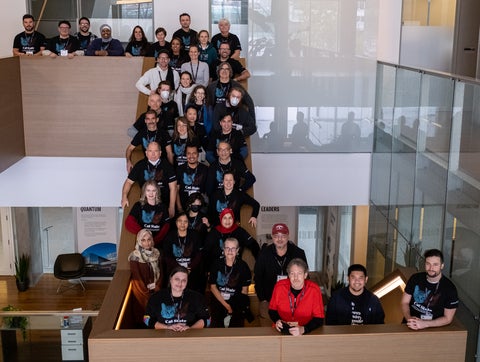
Undergraduate School on Experimental Quantum Information Processing (USEQIP)
We were joined by 24 Undergraduate Students from six countries for our two-week summer program consisting of workshops, lectures and experiments.
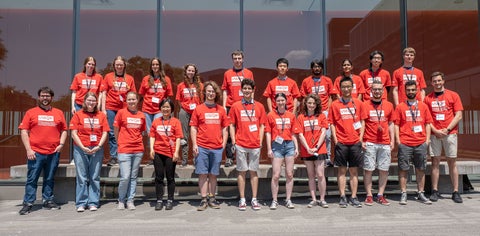
What comes after quantum?
Quantum theory, the physics of the very small, helps us to understand nature and our world by explaining and predicting the behaviour of atoms and molecules. Researchers at IQC are interested in what comes after quantum theory, specifically the possibility of a broader theory that replaces quantum theory as a more complete description of nature.
IQC alum reaches impressive NIST milestone with standardized code
Researchers at IQC have made significant contributions to a Post-Quantum Cryptography standardization process run by the National Institute for Standards and Technology (NIST). As the process enters its fourth round, researchers are one step closer to identifying codes that will be widely accepted as reliable and safe against attacks enabled by emerging quantum computers.
New quantum tool developed in groundbreaking experimental achievement
Scientists recreate properties of light in neutral fundamental particles called neutrons for the first time in experimental history.
New light absorbing material to improve cancer dose monitoring and eye imaging
The creation of a material that absorbs the majority, if not all light, would improve the effectiveness of health-related equipment. Michael Reimer, a faculty member at the IQC and researcher in Electrical and Computer Engineering at the University of Waterloo, has set his sights on creating an artificially engineered material, known as a metamaterial, to do just that.
Exploring the complexity of thermal properties
Computational complexity is a field of computer science that aims to understand the resources needed to solve computational problems. Researchers Anirban Chowdhury and David Gosset at IQC have been collaborating with IBM researchers Sergey Bravyi and Pawel Wocjan to explore the exciting interface between computational complexity and quantum many-body physics.
Finetuning chemistry by quantum interference
Atoms and molecules are the building blocks of chemistry and are important to our understanding of the world. By cooling atoms and molecules to ultracold temperatures it opens up a new understanding of quantum chemistry. Working with nanokelvin temperatures, one billion times colder than Antarctica during winter, researchers can observe and control particles in ways not possible at room temperature. When really cold, particles behave in strange and exciting ways. Researchers are discovering unexpected results by looking at particles from a quantum perspective.
Bridging theory to experimental reality
A duo of researchers, including IQC PhD candidate Shayan Majidy, developed a mathematical tool to investigate quantum thermodynamics on existing quantum hardware. This research helps the efforts underway to bridge the gap between theory and experimental reality.
Photon Detector Module gearing up for International Space Station
A single-photon detector and counting module (SPODECT) recently built by Waterloo’s Quantum Photonics Lab for the International Space Station (ISS) will be used to verify quantum entanglement and test its survivability in space as part of the Space Entanglement and Annealing QUantum Experiment (SEAQUE) mission, in a collaboration with researchers at the University of Illinois Urbana-Champaign, the Jet Propulsion Laboratory, ADVR Inc, and the National University of Singapore.
Researchers find simple method for creating 3-dimensional bridge structures on microchips
Researchers Noah Janzen and Adrian Lupascu from the IQC have found a new one-step process to construct tiny bridge structures on microchips with superconducting circuits.
Subatomic MRI could lead to new drug therapies
A new imaging technique using quantum science may lead to novel drug therapies and treatment options, a recent study has found.
Vanier Canada Graduate Scholarship
The Vanier Canada Graduate Scholarship program is awarded annually to highly qualified doctoral students who demonstrate academic excellence, research potential and leadership. This prestigious scholarship was developed by the Natural Sciences and Engineering Research Council (NSERC) to attract and retain world-class doctoral students in Canada.
This year's recipients feature two IQC students:
Dean of Science Award
This award is given to a master's student in each department in recognition of outstanding academic performance.
Kimia Mohammadi

IQC student receives Dean of Science Award for outstanding academic performance
IQC David Johnston Award for Scientific Outreach
The David Johnston Award for Scientific Outreach recognizes students dedicated to promoting public awareness of quantum research and science in the community.
Pablo Palacios-Avila
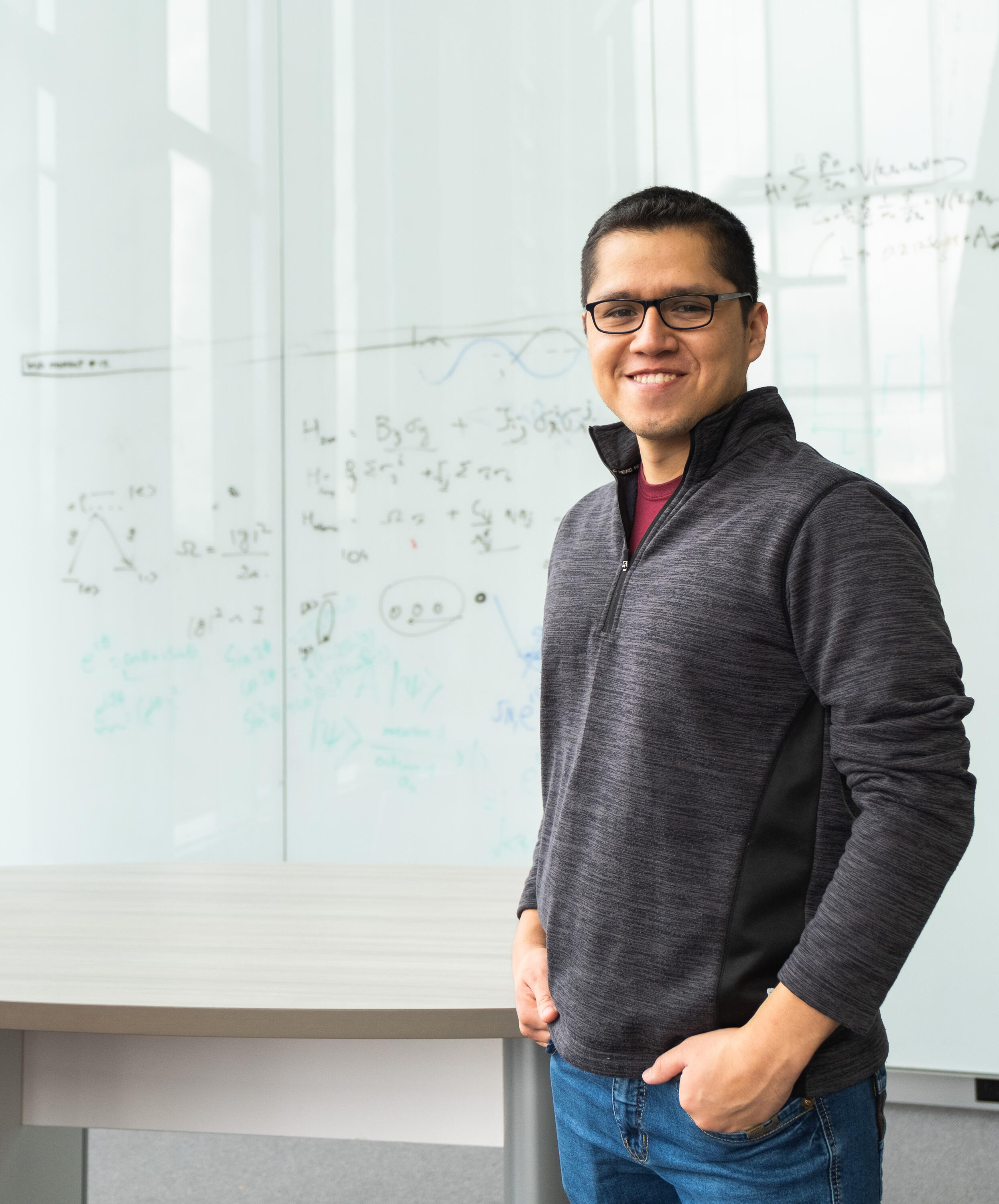
IQC PhD student Pablo Palacios-Avila honoured for excellence in scientific outreach
W.B. Pearson Medal
This medal was created to honour Professor W.B. Pearson for his contribution to the University of Waterloo and to Canada as a research scientist and teacher, and is awarded in recognition of creative research as presented in the student's thesis.
Jie Lin

IQC student recognized with W.B. Pearson Medal for creative research
Laflamme and Gregson Award for Women in Quantum Information Science
This scholarship recognizes women in Quantum Information Science and Technology and acknowledges their demonstration of strong academic achievement as well as their potential for research excellence.
Megan Byres
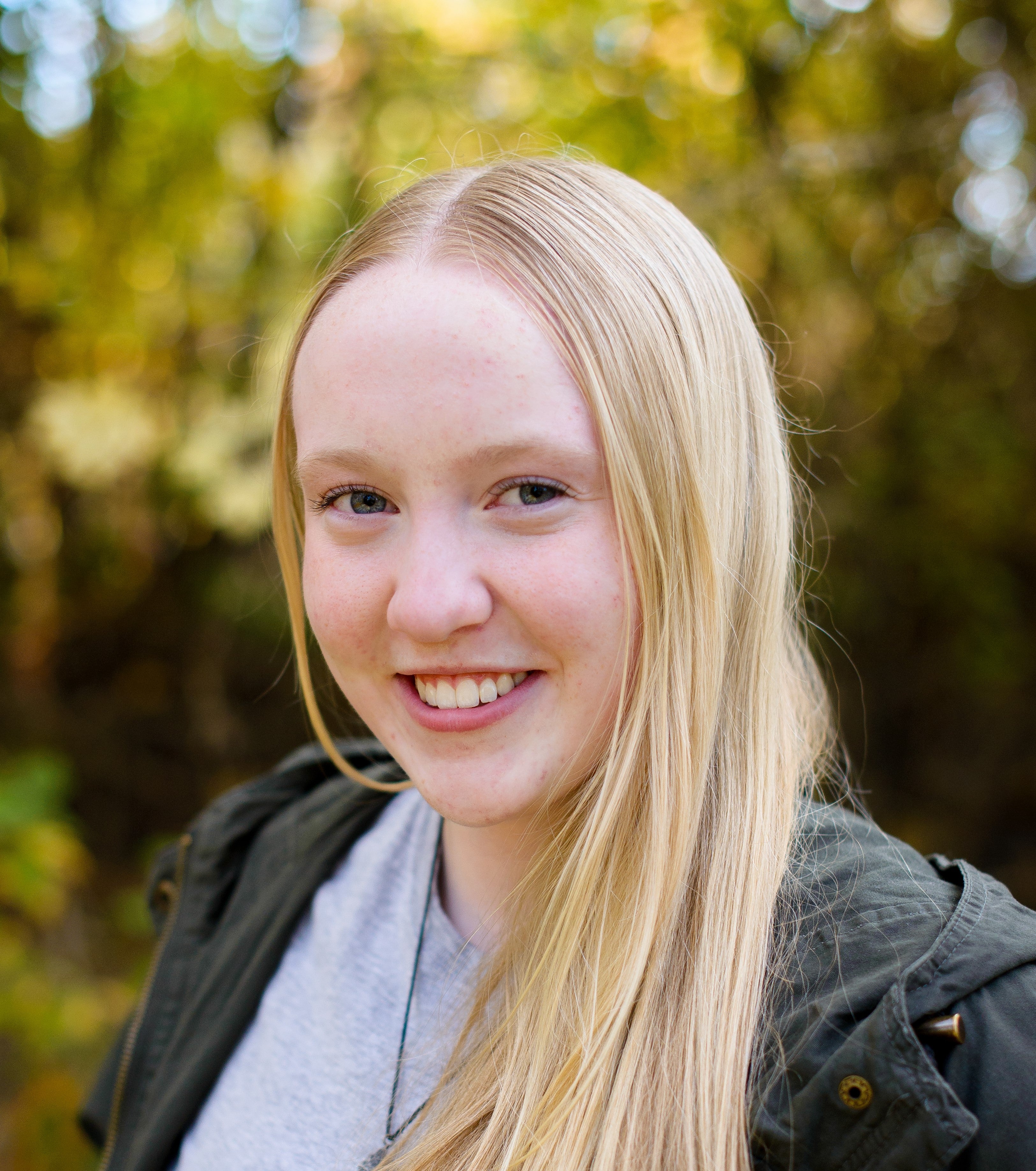
2022 recipient of Laflamme and Gregson Award for Women in Quantum Information Science announced
IQC Achievement Award
This award is given to University of Waterloo graduate students who studied quantum information and have achieved excellence in research.
This year's recipients feature three PhD students:
Applied Mathematics – Quantum Information:
- Benjamin Lovitz (PhD)
- Jose de Ramon Rivera (PhD)
- Mohamed Ayma El Mandouh (MMath)
Applied Mathematics:
- Nathaniel Stemen (MMath)
Chemistry – Quantum Information:
- Sean Walker (PhD)
Combinatorics and Optimization - Quantum Information:
- Angus Joon Lowe (MMath)
- David Jepson (MMath)
- Etude O’Neel Judy Arrow (MMath)
- Natalie Parham (MMath)
- Yinchen Liu (MMath)
Combinatorics & Optimization:
- Mary Katherine MacPherson (MMath)
Computer Science - Quantum Information:
- Junqiao Lin (MMath), Li Liu (PhD)
- Sebastian Reynaldo Verschoor (PhD)
Computer Science:
- Can Bostanci (MMath)
Electrical and Computer Engineering – Quantum Information Graduates:
- Luyao Wang (MASc)
- Madelaine Susan Zoritza Liddy (PhD)
- Turner Garrow (MASc)
Electrical and Computer Engineering Graduates:
- Aaron Gross (MASc)
Physics - Quantum Information Graduates
This list includes the first graduates of our new physics master’s degree specializing in quantum technology:
- Alex James Currie (MSc)
- Ali Binai-Motlagh (MSc)
- Allison Sachs (PhD)
- Angus Chi Hang Kan (PhD)
- Austin David Woolverton (MSc)
- Bohdan Khromets (MSc)
- Bowen Yang (PhD)
- Elijah William Durso-Sabina (MSc)
- Fehime Sema Kuru (MSc)
- Jeremy Bejanin (PhD)
- Jie Lin (PhD)
- Joanna Krynski (MSc)
- Kimia Mohammadi (MSc)
- Mayar Mohamed (MSc)
- Michael James Grabowecky (MSc)
- Noah Cornelius Janzen (MSc)
- Olivier Nahman-Levesque (MSc)
- Sandra Wei Ling Cheng (MSc)
- Sayan Gangopadhyay (MSc)
- Shlok Ashok Nahar (MSc)
- Theerapat Tansuwannont (PhD)
- Yvette de Sereville (MSc)
- Youn Seok Lee (PhD)
- Zewen Sun (MSc)
Physics Graduates:
- Carolyn Earnest (MSc)
- Evan White (MSc)
- Lemieux Wang (MSc)
- Rahul Menon (MSc)
- Shixin Ren (MSc)
- Xiaoran Li (MSc)
- Xiaoxuan Fan (MSc)
2022 : Retour sur la 20e année de l’IQC
Alors que s’achève 2022, 20e année d’existence de l’Institut d’informatique quantique (IQC), nous voulons profiter de l’occasion pour rappeler les réalisations de notre communauté et souligner certains points saillants de l’année.
Renseignez-vous sur les célébrations de notre 20e anniversaire et les réalisations de notre programme de rayonnement quantique; revoyez certains points saillants de l'année; joignez-vous à nous pour honorer nos récipiendaires de prix en 2022 et féliciter nos récents diplômés!
Cette année, nous avons célébré 20 ans de physique quantique à l’IQC! Depuis 2 décennies, l’IQC est un institut de recherche de premier plan en physique quantique et un moteur du développement de technologies quantiques. Cet anniversaire nous a donné l’occasion de revenir sur les percées et les réalisations de notre communauté, et de jeter un regard sur l’avenir du domaine dans nos tables rondes sur les perspectives quantiques.
De la théorie à l’expérimentation, nos installations de classe mondiale et nos experts pluridisciplinaires ont réuni le talent et l’expertise voulus pour faire du Canada un chef de file mondial dans le domaine quantique.
Visionnez dans notre canal YouTube les tables rondes au cours desquelles des experts de l’IQC ont présenté leur point de vue sur les applications des technologies quantiques :
L’IQC partage avec enthousiasme ses connaissances du monde quantique au moyen de ses programmes de rayonnement de classe mondiale. Cette année, nous avons accueilli des gens à l’esprit curieux provenant de 24 pays, en leur offrant des possibilités adaptées à tous, qu’ils soient jeunes étudiants ou enseignants du secondaire.
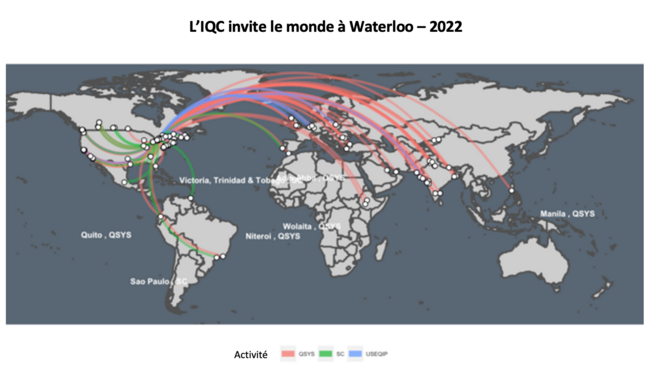
QSYS (Quantum School for Young Students – École de physique quantique pour jeunes étudiants)
Nous avons accueilli 152 élèves du secondaire, dont 113 en mode virtuel et 39 en personne, pour 18 séances de cours et 10 activités de laboratoire.

Atelier Schrödinger
Nous avons accueilli 38 enseignants du secondaire provenant de 7 pays pour une session de perfectionnement professionnel d’une durée de 3 jours.

USEQIP (Undergraduate School on Experimental Quantum Information Processing – École de 1er cycle sur le traitement quantique expérimental de l’information)
Pas moins de 24 étudiants de 1er cycle universitaire provenant de 6 pays ont participé à notre programme d’été de 2 semaines comportant des ateliers, des cours et des expériences.

Qu’y a-t-il au-delà de la physique quantique?
La physique quantique, physique de l’infiniment petit, nous aide à comprendre la nature et notre univers en expliquant et en prédisant le comportement des atomes et des molécules. Des chercheurs de l’IQC s’intéressent à ce qu’il y a au-delà de la physique quantique, plus précisément à la possibilité d’une théorie plus vaste qui remplacerait la physique quantique en décrivant la nature d’une manière plus complète.
Un ancien de l’IQC propose un code normalisé qui obtient un succès impressionnant au NIST
Des chercheurs de l’IQC ont contribué de manière importante à un processus de normalisation de cryptographie postquantique mené par l’Institut national des normes et de la technologie des États-Unis (NIST pour National Institute for Standards and Technology). Alors que le processus en est au début de sa 4e étape, les chercheurs se rapprochent du point où ils pourront choisir des codes qui seront largement reconnus comme fiables et sûrs contre des attaques rendues possibles par les nouveaux ordinateurs quantiques.
Un nouvel outil quantique mis au point grâce à une réussite expérimentale révolutionnaire
Pour la première fois dans l’histoire de l’expérimentation, des scientifiques recréent des propriétés de la lumière dans des neutrons, particules fondamentales neutres.
Un nouveau matériau absorbant la lumière améliorera l'imagerie oculaire et la surveillance des doses de médicaments contre le cancer
La création d’un matériau absorbant la plus grande partie sinon la totalité de la lumière améliorerait l’efficacité d’équipements médicaux. Michael Reimer, professeur à l’IQC ainsi que chercheur en génie électrique et informatique à l’Université de Waterloo, a entrepris de créer un matériau composite artificiel, ou métamatériau, ayant exactement cette propriété.
Étudier la complexité des propriétés thermiques
La complexité algorithmique est un domaine de l’informatique qui vise à connaître les ressources nécessaires pour résoudre des problèmes de calcul. Anirban Chowdhury et David Gosset, chercheurs à l’IQC, collaborent avec Sergueï Bravyi et Pavel Wocjan, chercheurs chez IBM, à l’étude des liens passionnants entre la complexité algorithmique et la physique des systèmes quantiques à N corps.
Un réglage fin de réactions chimiques grâce à l’interférence quantique
En chimie, les composantes fondamentales sont les atomes et les molécules, qui jouent un rôle important dans notre compréhension du monde. Le refroidissement d’atomes et de molécules à des températures ultrabasses ouvre de nouvelles perspectives sur la chimie quantique. En travaillant à des températures de l’ordre du nanokelvin — soit un milliard de fois plus froid que l’Antarctique en hiver —, les chercheurs peuvent observer et contrôler les particules selon des modalités impossibles à la température ambiante. Lorsqu’elles sont vraiment froides, les particules se comportent de manière étrange et passionnante. Les chercheurs obtiennent des résultats inattendus en observant des particules selon une perspective quantique.
Faire le pont entre la théorie et la réalité expérimentale
Deux chercheurs, dont Shayan Majidy, doctorant à l’IQC, ont mis au point un outil mathématique pour étudier la thermodynamique quantique sur des dispositifs quantiques existants. Ces recherches contribuent à combler le fossé entre la théorie et la réalité expérimentale.
Un module de détection de photons intriqués en préparation pour la Station spatiale internationale
Un module de détection et de comptage de photons individuels (SPODECT) récemment réalisé par le laboratoire de photonique quantique de l’Université de Waterloo pour la Station spatiale internationale (SSI) servira à vérifier l’intrication quantique et à tester sa survivabilité dans l’espace, dans le cadre de la mission SEAQUE (Space Entanglement and Annealing QUantum Experiment – Expérience quantique d’intrication et de recuit dans l’espace), menée en collaboration avec des chercheurs de l’Université de l’Illinois à Urbana-Champaign, du Jet Propulsion Laboratory (JPL), d’ADVR inc. et de l’Université nationale de Singapour.
Des chercheurs inventent un procédé simple pour ajouter des ponts surélevés sur des micropuces
Noah Janzen et Adrian Lupascu, chercheurs à l’IQC, ont inventé un nouveau procédé en une seule étape pour construire de minuscules ponts sur des micropuces portant des circuits supraconducteurs.
L’IRM subatomique pourrait mener à de nouvelles thérapies médicamenteuses
Selon une étude récente, une technique d’imagerie inédite qui fait appel à la physique quantique pourrait mener à de nouvelles thérapies médicamenteuses et à de nouvelles options de traitement.
Bourses d'études supérieures du Canada Vanier
Chaque année, les bourses d'études supérieures du Canada Vanier sont attribuées à des doctorants hautement qualifiés qui font preuve d’excellence universitaire, d’un fort potentiel de recherche et de grandes compétences en leadership. Ces bourses prestigieuses ont été créées par le Conseil de recherches en sciences naturelles et en génie (CRSNG) pour attirer et retenir au Canada des doctorants de classe mondiale.
Deux étudiants à l’IQC font partie des récipiendaires de cette année.
Prix du doyen de la Faculté des sciences
Dans chaque département, ce prix est remis à une personne inscrite à la maîtrise et qui fait preuve d’un rendement scolaire exceptionnel.
Kimia Mohammadi

Bourse David-Johnston de l’IQC pour le rayonnement scientifique
Les bourses David-Johnston pour le rayonnement scientifique récompensent des étudiants qui font connaître à la collectivité la physique quantique et la recherche dans ce domaine.
Pablo Palacios-Avila

Médaille W.B.-Pearson
Cette médaille a été créée en l’honneur du professeur W.B. Pearson pour sa contribution à l’Université de Waterloo et au Canada en tant que chercheur et professeur. Elle est attribuée pour des recherches originales présentées dans la thèse du lauréat.
Jie Lin

Bourse Laflamme-et-Gregson pour les femmes en informatique quantique
Cette bourse souligne la place des femmes en science et technologie de l’information quantique. Les récipiendaires sont choisies pour leur rendement scolaire et leur fort potentiel d’excellence en recherche.
Megan Byres

Attribution de la bourse Laflamme-et-Gregson 2022 pour les femmes en informatique quantique
Prix d’excellence de l’IQC
Ces prix sont remis à des personnes qui font des études supérieures en informatique quantique à l’Université de Waterloo et qui se distinguent par leur excellence en recherche.
Les récipiendaires de cette année sont 3 doctorants.
Mathématiques appliquées – Information quantique
- Benjamin Lovitz (Ph.D.)
- Jose de Ramon Rivera (Ph.D.)
- Mohamed Ayma El Mandouh (M.Math.)
Mathématiques appliquées
- Nathaniel Stemen (M.Math.)
Chimie – Information quantique
- Sean Walker (Ph.D.)
Combinatoire et optimisation – Information quantique
- Angus Joon Lowe (M.Math.)
- David Jepson (M.Math.)
- Etude O’Neel Judy Arrow (M.Math.)
- Natalie Parham (M.Math.)
- Yinchen Liu (M.Math.)
Combinatoire et optimisation
- Mary Katherine MacPherson (M.Math.)
Informatique – Information quantique
- Junqiao Lin (M.Math.)
- Li Liu (Ph.D.)
- Sebastian Reynaldo Verschoor (Ph.D.)
Informatique
- Can Bostanci (M.Math.)
Génie électrique et informatique – Information quantique
- Luyao Wang (M.Sc.A.)
- Madelaine Susan Zoritza Liddy (Ph.D.)
- Turner Garrow (M.Sc.A.)
Génie électrique et informatique
- Aaron Gross (M.Sc.A.)
Physique – Information quantique
Cette liste comprend les premiers diplômés de notre nouvelle maîtrise en physique spécialisée en technologie quantique.
- Alex James Currie (M.Sc.)
- Ali Binai-Motlagh (M.Sc.)
- Allison Sachs (Ph.D.)
- Angus Chi Hang Kan (Ph.D.)
- Austin David Woolverton (M.Sc.)
- Bohdan Khromets (M.Sc.)
- Bowen Yang (Ph.D.)
- Elijah William Durso-Sabina (M.Sc.)
- Fehime Sema Kuru (M.Sc.)
- Jeremy Bejanin (Ph.D.)
- Jie Lin (Ph.D.)
- Joanna Krynski (M.Sc.)
- Kimia Mohammadi (M.Sc.)
- Mayar Mohamed (M.Sc.)
- Michael James Grabowecky (M.Sc.)
- Noah Cornelius Janzen (M.Sc.)
- Olivier Nahman-Levesque (M.Sc.)
- Sandra Wei Ling Cheng (M.Sc.)
- Sayan Gangopadhyay (M.Sc.)
- Shlok Ashok Nahar (M.Sc.)
- Theerapat Tansuwannont (Ph.D.)
- Yvette de Sereville (M.Sc.)
- Youn Seok Lee (Ph.D.)
- Zewen Sun (M.Sc.)
Physique
- Carolyn Earnest (M.Sc.)
- Evan White (M.Sc.)
- Lemieux Wang (M.Sc.)
- Rahul Menon (M.Sc.)
- Shixin Ren (M.Sc.)
- Xiaoran Li (M.Sc.)
- Xiaoxuan Fan (M.Sc.)

